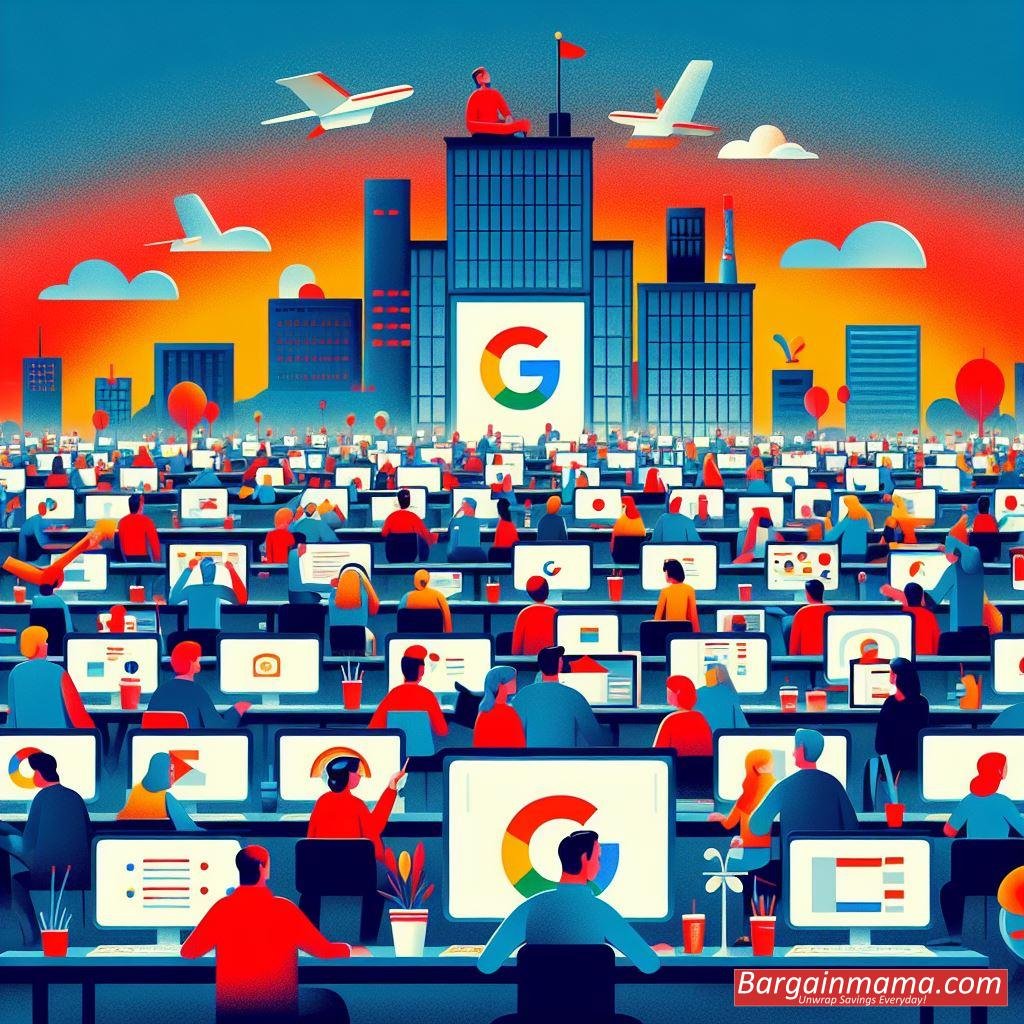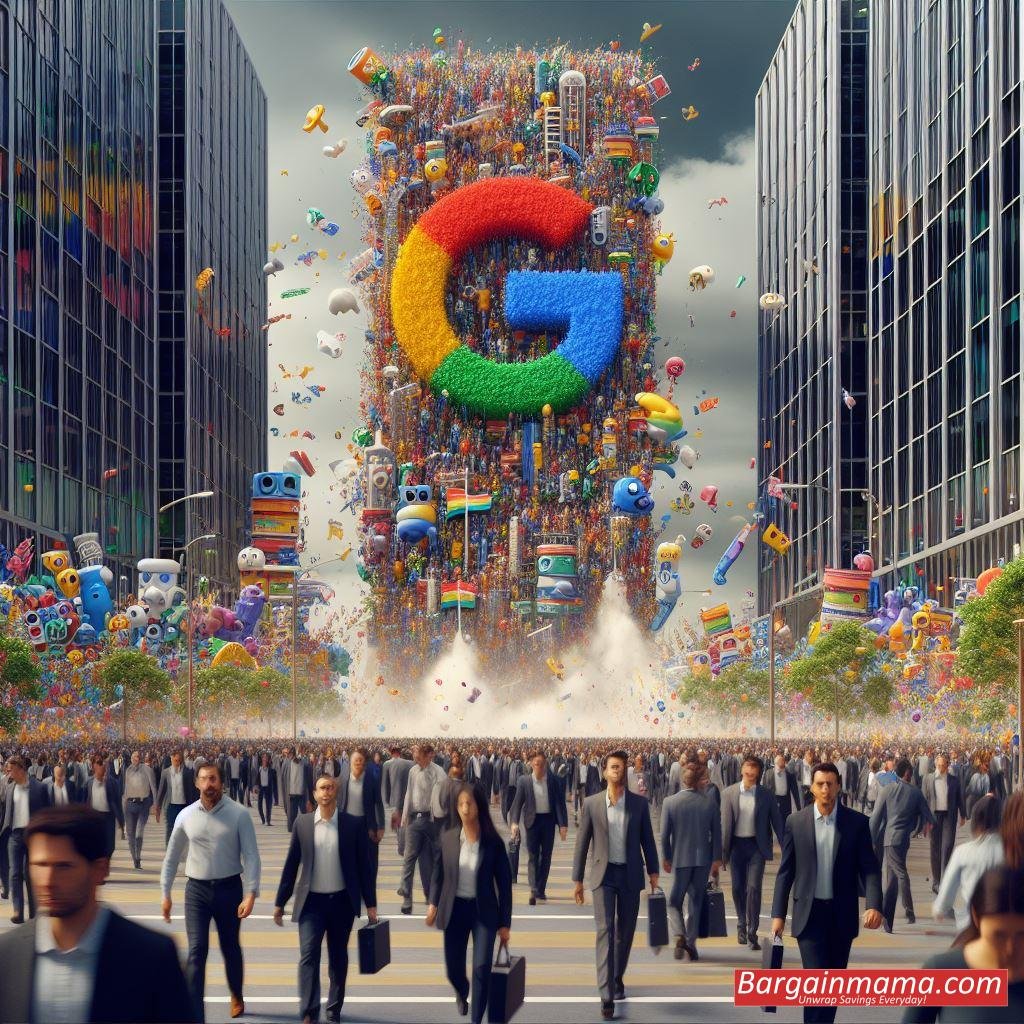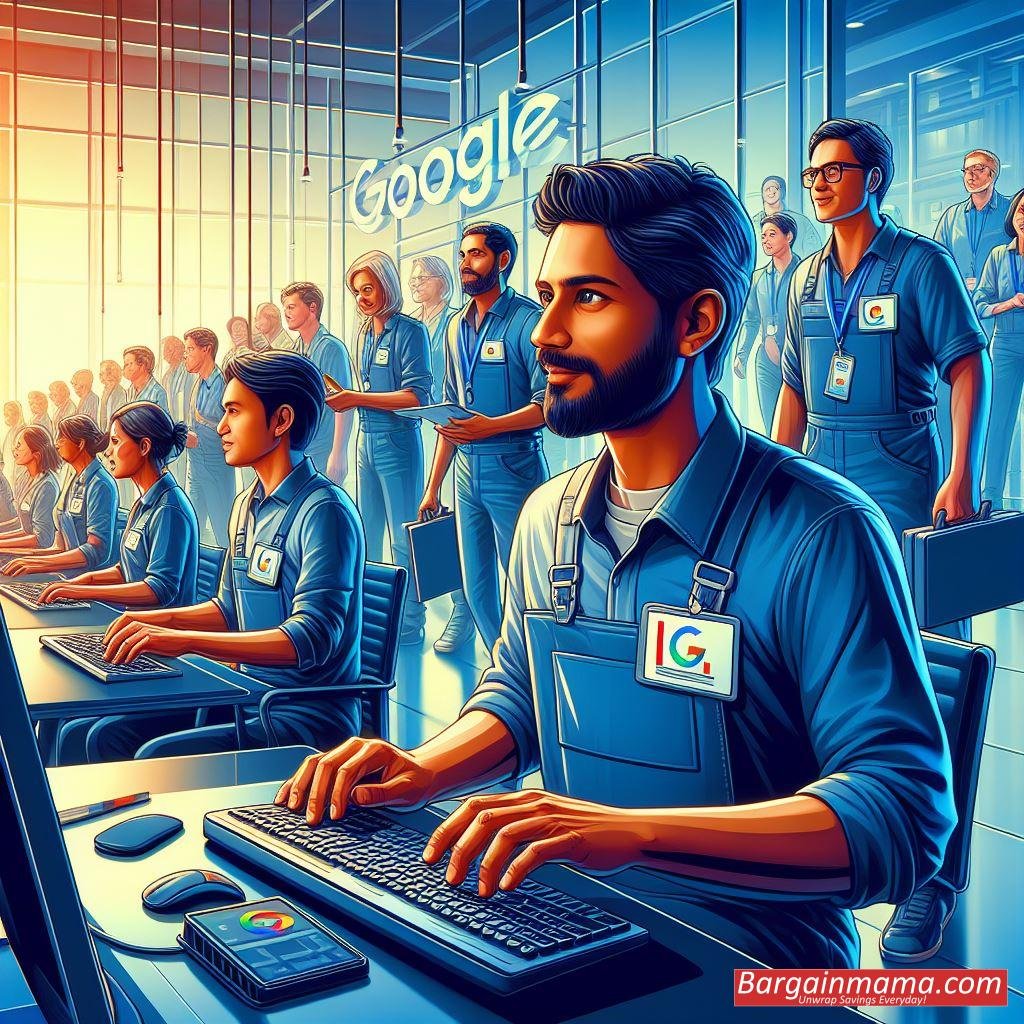Unexpectedly, Google recently revealed that it was reorganizing its workforce, laying off hundreds of workers who were in charge of selling advertisements to large corporations. This action has prompted concerns about the future of the internet giant’s advertising division and represents a significant change in approach.

The Record-Breaking Reduction of Workforce
Google, a company well-known for its creativity and leadership in the internet advertising market, is undergoing a significant transition as it says goodbye to a sizable portion of its ad sales staff. The action is a component of a larger business plan to streamline processes and adjust to the changing demands of digital advertising.
According to sources within the organization, those in positions pertaining to advertising sales for major corporations are the main victims of the layoffs. This tactical choice is interpreted as a reaction to shifting consumer preferences, technology breakthroughs, and the growing need for more effective and focused advertising.
Changing with the Market
Rapid changes in consumer behavior, technology breakthroughs, and market trends are driving ongoing change in the digital advertising sector. Reorganizing its ad sales team is probably an attempt by Google to redirect funds toward more creative and successful advertising solutions.
The effectiveness of traditional ad sales approaches may decline if consumers and organizations adopt new channels and formats, like influencer collaborations, social media advertising, and video marketing. Google’s reorganization shows that the company is dedicated to remaining innovative and leading the digital advertising market.

Accepting AI and Automation
Google’s growing reliance on automation and artificial intelligence (AI) in its advertising operations is one of the main causes of this personnel reduction. The company has been making significant investments in AI technology in order to improve ad targeting, optimize campaigns, and provide users with more tailored ad experiences.
Google hopes to cut expenses, increase productivity, and maintain its competitiveness in a sector where data-driven decision-making is becoming common by implementing sophisticated automation into its advertising processes. This move toward automation fits in with larger industry trends as well, since advertisers are looking for more sophisticated and data-driven ways to connect with their target markets.
Effect on Workers and Organizational Culture
Even while Google made this strategic choice in order to adjust to changes in the business, there’s no denying that it has had a big effect on the impacted personnel. Since the organization has a history of supporting a dynamic and creative work culture, people who are immediately affected by these layoffs may find it difficult to accept.
Google has stressed in reaction to the layoffs that it will provide severance compensation, career coaching, and help finding new jobs to support impacted employees. The company’s commitment to its employees is demonstrated by its focus on preserving a happy and encouraging work environment during this change.
Prospects for Google’s Advertising Division in the Future
The future of Google’s advertising sector continues to be a matter of curiosity for industry analysts as the company goes through this massive restructure of its workers. Google appears to be setting itself up for long-term success in the competitive field of digital advertising based on its dedication to remaining at the forefront of technical breakthroughs as well as its continued investment in automation and artificial intelligence.
Experts in the field will be keenly observing how Google’s strategy changes affect its market share, competitiveness, and capacity to provide advertisers cutting-edge solutions. Adaptability is required in the ever-changing world of digital advertising, and Google’s most recent action demonstrates its will to take on these difficulties.

In summary
In conclusion, Google’s move to fire hundreds of employees in charge of selling ads to large corporations is indicative of the company’s proactive strategy for managing the constantly shifting world of digital advertising. Google wants to stay a dominant force in the market by providing more efficient and focused advertising solutions. To do this, the company is adopting automation, artificial intelligence, and new market trends. The future of Google’s advertising section seems to be full of development and creativity as the staff adapts to these changes.



